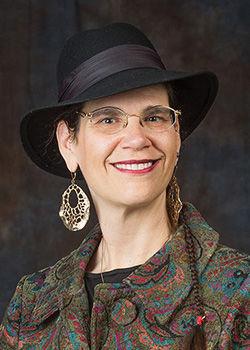Do we have to cross-over to inherit "Heaven" or "Hell"? Is it possible to experience either of them while still in one's lifetime? How did Moshe navigate his continuous movement between the realms of reality between which he continuously vacillated? How can you be a leader of people when you are also defined as "Ish Elokim" – a man of God, a spouse to God?
I had two immediate reactions when I heard a description of the World-to-Come as a movie theatre. My teacher at the time said: "The World-to-Come is a movie theatre. In one eye you see each and every moment as you lived it, and with the other eye you see each and every moment as you were meant to live it. When you see the same movie in both eyes you are experiencing Heaven, and when you see two different movies simultaneously you are experiencing Hell."
My first reaction was: "Stop watching ‘The Sound of Music' immediately! You've seen it over 30 times and when you get "There" you'll see it over 30 times again. You don't need to see it anymore on this side of your life!" My second reaction was a bit more painful: "One doesn't have to cross-over to inherit Heaven or Hell, this can happen in one's lifetime as well!"
I believe that we have all been in situations where we have a sensation that we are in the right place in the right time doing the right thing. I have come to define these moments as "Heaven." I have a deep sense of joy and quiet that take over in those divine experiences. The opposite is equally true – a situation where I have a deep sense of ‘the right person' coupled with ‘the wrong time'; a piece of wisdom that came to me too late to manifest the change in my life so needed earlier in my linear narrative. Those are the moments that my breath becomes shallow and I experience a pinch in my heart. These are "Hell" moments.
In our tradition the "Hell" encounters are also called moments of "Hach'matzat Sha'ah" – an opportunity that was missed, ‘a moment that went sour'… If you see the word "Chametz" in the phrase you are correct. You see, matzah is an image of "The right thing at the right time". Perhaps, not other times of the year or other situations, but when you are ‘on the run' and can't wait, then unleavened bread, within 18 minutes from when the water touched the flour, is the answer! Chametz, on the other hand, is 18 minutes and one second… the right ingredients, the right intension, but the timing is off! "Hell" crumbling what looks like a fitting piece of matzah but isn't at all because of being one second too late! How many of us have found ourselves in front of a locked access door to a plane… the plane is standing there and we can't get on, as the door was locked only a minute before.
When reading this Shabbat's parshah/portion I find myself using this lens as I specifically look at Moshe and the outcome of his continuous encounters with Par'oh. Wondering if what I am seeing is not an ongoing enactment of moments of "Hell" in Moshe's life.
In last week's Torah portion Moshe tries to relinquish the mission he is sent on, owning his speech impediment. He owns the weightiness of his speech, being K'vad Peh (lit. ‘heavy mouth'). It is as if he can foresee that the weight of his lips will bring out the weight of Par'oh's heart – K'vad Lev (lit. ‘heavy heart'). That their "neuron mirroring" would bring out the human challenge that they each carried, instead of their Divine attributes. Seven times in our Torah portion Par'oh's heart is strengthened /hardened /locked closed /weighty. The brokenness of both nations clashing in the face of what could have been the ultimate redemption.
Have you ever taken a moment to imagine a Torah in which the narrative we celebrate every year would be one in which Moshe comes to Par'oh asking to send out the Children of Israel, and Par'oh's response is: "Of course! Your work in Egypt of over! It is time to fulfill God's promise to redeem you!"??? Can you imagine what our Pesach Haggadah would say if instead of Nachshon leaping into the Red Sea the walls of the ocean would rise in honor of Moshe and Par'oh as they stand side by side on the cusp of the sea shore?
Can you imagine an "Egypt narrative" which didn't play out Moshe's "Hell" – God promising to be by his side and assist him as he stands in front of Par'oh, and he, Moshe not being able to rise to the magnitude of God's promise? Can you imagine a Torah portion in which we read of Moshe's "Heaven" – God promises him to be by his side, he lays his ultimate faith in God's promise and as an "Ish Elokim" experiences Divine "neuron mirroring" with God, which in turns allows a Divine "neuron mirroring" between Moshe and Par'oh?
As we enter this Shabbat I pray that we can offer this gift of interaction with each other. That we can find a way to offer each other a reflection of the Divine that we carry in our midst and bring into the world. That we learn from our teachers in both their triumphs and shortcomings. I pray that we can generate in each other Divine "neuron mirroring" that in turn will evoke within the One-and-Only a desire to manifest in God's own highest Grace and Lovingkindness.
Shabbat Shalom.

